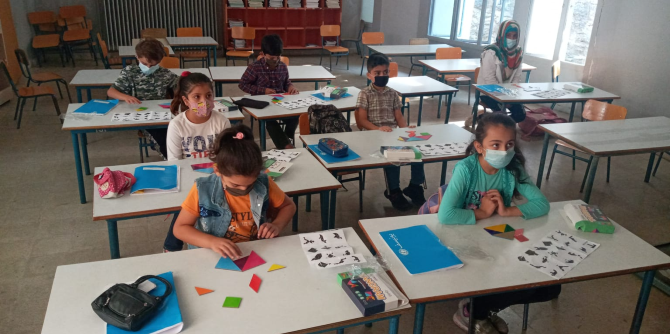Oxford University stands to make many millions from its vaccine spin-out. Yet the deals it has done, and the lack of a patent waiver, limit the ability of the Global South to manufacture AstraZeneca jabs. Luke McDonagh (LSE) argues that the university, as a wealthy and publicly funded institution, has a special responsibility to ensure the vaccine reaches countries where thousands of people are dying from COVID every day.
The Oxford-AstraZeneca vaccine has now been administered to tens of millions of people. The success of the UK’s rollout has enabled it to ease lockdown restrictions, with many planning summer holidays abroad. Meanwhile, Vaccitech – the Oxford spin-out that helped develop the vaccine – is in the process of filing an Initial Public Offering (IPO) on the US Nasdaq exchange with an estimated valuation of more than £400m. AstraZeneca (AZ) recently awarded $3.6bn in dividends to shareholders. In the UK, the signals are clear: the war on COVID is ending; life is returning to normal; and the pharmaceutical industry is booming.
AZ fully intends to profit from sales of the vaccine in the near future
Yet billions remain unvaccinated, and the deepening crises in India and Latin America (especially in Brazil) are evidence of grotesque global inequality. Many have no hope of receiving the Oxford vaccine (or any other) in 2021, 2022, or even 2023. Understanding the decision made by Oxford in the spring of 2020 regarding licensing of intellectual property helps to explain how we arrived at this frustrating quandary. We know that there is a viable, effective and easily storable COVID vaccine that can be produced at scale. Yet we also know there is no realistic prospect of it becoming a ‘global people’s vaccine’ any time soon.
Oxford’s exclusive licensing agreement with AstraZeneca
Rather than licensing the relevant IP and know-how openly, so that any viable producer could manufacture the vaccine, Oxford announced in April 2020 that it had agreed an exclusive licence with AZ for mass production. AZ agreed to supply the initial vaccine doses at cost price. Yet AZ’s R&D/production costs have been de-risked by public funds — not only from the UK government, but also from the US and EU. Indeed, an estimated 97% of the cost of the Oxford/AZ vaccine has been borne by the public. Similarly, the Moderna mRNA vaccine that has been administered widely in the US relies on patented technology developed at the US government’s National Institute for Health (NIH). The US government is thus not only a major funder of the Moderna vaccine, it is a patent holder.
Credit where it is due: Oxford and AZ have acted more ethically than other providers such as Moderna and BioNTech/Pfizer. The Oxford-AZ deal includes the potential for non-exclusive, royalty-free licences to be offered to manufacturers to support production that is free-of-charge, at-cost, or at cost with limited margin supply. A bilateral licensing deal is in effect between Oxford/AZ and the Serum Institute India (SII). However, bilateral agreements, while positive, are ultimately limited in their scope. Although SII has manufactured tens of millions of doses of the vaccine for India and developing countries as part of the international COVAX scheme, this falls woefully short of the billions of doses that are required. As the World Health Organization’s director general, Tedros Adhanonom Ghebreyesus recently said: “On average in high-income countries, almost one in four people has received a vaccine. In low-income countries, it’s one in more than 500”.
The terms of the AZ-SII agreement are not public, but there are indications that they are restrictive and problematic. Recent supply problems arising from AZ’s failure to meet its production targets led AZ to seek to import to the UK millions of vaccine doses made in India at SII. Were it not for AZ’s UK and European production shortfalls, these doses would, presumably, have been made available to developing countries (via COVAX). The idea that AZ would attempt to prioritise UK supply needs over those of developing countries calls into question the ultimate value of the agreement between AZ and SII. In any event, the Indian government banned the export of these SII doses due to the recent worsening of the crisis in India.
Commercial rewards loom for Oxford
Last autumn I raised a concern that Western eagerness to put the COVID crisis behind us, coupled with the pharmaceutical industry’s profit incentive, meant the Global South could be de-prioritised in terms of vaccine access. Sadly, this has indeed happened. The dynamic has played out in the same way it did during the HIV/AIDS crisis of the 1990s, only faster: once treatments became more widely available in the West, the spectre of AIDS faded into the background of news reports, even as the crisis spiralled out of control in African countries. Now, as life the UK and US returns to normal, there is a grave danger that populations in the west will ‘move on’ from COVID, tuning out the depressing news from the Global South. As new variants arise, the emphasis may switch to developing and producing new vaccine boosters for the UK, North America and EU to protect against ‘foreign’ variants. Existing global vaccine inequality could feasibly morph into a kind of semi-permanent global COVID apartheid.
The thought that shareholders could be popping champagne at the Vaccitech IPO while thousands die of COVID each day in India and Brazil is truly obscene
That scenario would still be immensely profitable for vaccine manufacturers. Pfizer executives are already openly discussing significant price rises once COVID moves to an ‘endemic’ rather than ‘pandemic’ situation in the West. Likewise, AZ fully intends to profit from sales of the vaccine in the near future — the company will raise prices when Oxford and AZ deem the pandemic to be over, which could be as soon as July 2021. Since annual booster jabs will likely be required, they stand to benefit financially in the medium and long term.

The market is beginning to price this in. During 2020 AZ a saw a growth in its share value, and even if this has fallen back slightly during early 2021 there is no doubt that AZ is in rude financial health. Meanwhile, Vaccitech’s spin-out will further enrich Oxford University.
Inequality of production leads to inadequate supply
Very few vaccines are being manufactured at all in Africa and Latin America. Relying almost exclusively on a single producer – SII in India – to provide for COVAX has proven woefully inadequate. Resolving this production and supply problem will take time, but it is not insurmountable. True, the manufacturing processes for COVID vaccines are complex and varied, depending on the type of vaccine involved; delays in the supply of materials can create bottlenecks; and successful production requires a lot of know-how. Recent wasteful production at a US factory manufacturing the Johnson & Johnson vaccine demonstrates that. But these issues mask the real problem: not enough productive supply has been built or is being built right now. Even where surplus supplies of Oxford/AZ and other vaccines exist, they are being hoarded by Western countries. In other words, we know that the private market and the wider world trade system (of which intellectual property (IP) is an integral part) is set to fail the Global South. A course correction is therefore required.
The role of the WTO TRIPS IP waiver proposal
India and South Africa first put forward the World Trade Organisation (WTO) TRIPS IP waiver proposal in the autumn of 2020, when it became clear that Western countries had already bought up most of the expected vaccine doses for 2021. Although sometimes referred to in shorthand as a ‘patent waiver’, it is in fact a broad package, supported by more than 60 other countries, that would see not only the temporary waiver of patents but the sharing of trade secrets and know-how, and the provision of much-needed investment in building up pharma capacity in the Global South. The impact would not be immediate. It would take many months before vaccine manufacture can begin at entirely new or vastly repurposed facilities. Yet other factories can be brought up to speed much more readily. In India the potential exists to scale up manufacturing capacity at several non-SII factories. The same is true at Bangladesh’s Incepta plant. But to do this requires what the waiver proposes: giving legal clarity on IP rights and facilitating technology transfer of know-how. Without this, the relevant investments will not be made.
When India-SA made their proposal, the UK, US and EU assumed each private patent-holding company (Moderna, Pfizer, AZ, etc) would be able to produce the doses they had promised. As the EU has discovered, this has proven utterly mistaken. Nevertheless, the waiver proposal has been continually rejected by the key Western countries. Even if they acknowledge that the TRIPS IP waiver could accelerate distribution of COVID vaccines in the short term, the representatives of big pharmaceutical companies in these states express a concern that the waiver could undermine the IP system’s incentives for R&D (or, more speculatively, allow China and Russia to take advantage).
Defenders of the status quo tend to understate the risks of the current pandemic and overstate the risk to the overall IP system from the waiver proposal, which is limited and temporary. It is worth recalling that much COVID-19 R&D has in any event been de-risked by public funds – in the case of Oxford/AZ and NIH/Moderna, key inventions were made at a public institution. So, it is far from clear that we are in a ‘normal’ incentive/reward situation. The argument that the COVID-limited TRIPS IP waiver will de-incentivise R&D in all other areas of science/tech (where IP protections remain unaffected) is thus unconvincing.
Pharma companies note that they are already cooperating to boost production – for example, the agreement between Johnson & Johnson and Merck to boost US production of the J&J vaccine. This is certainly positive, but these efforts remain grossly inadequate to world needs.
If we go on as we are, we will certainly fail to vaccinate the global public. This waiver was first proposed in autumn 2020, showing that the shortage and resultant nightmares in India and Brazil were foreseeable (and to some extent foreseen). While poor public health decisions in India and Brazil have exacerbated the pandemic, this does not absolve other powerful actors from their responsibilities. The truth is that the West has the power to do much more; all our efforts thus far, even where positive, fall well short of what is required. The UK, US and EU governments must help organise and fund the building of productive capacity in the Global South now, or the India crisis will be replicated all over South Asia (just as the Brazil crisis is being repeated all over Latin America). And as a patent and trade secret owner, Oxford University/Vaccitech ought to take a leadership role on technology transfer and sharing of know-how.
The Oxford vaccine story is multifaceted and revealing. It is a story of astounding scientific success at a public institution; of unequal global distribution and dismal productive failure in the private market; and of lucrative rewards for the holders of patents and trade secrets that will flow back, in part, to the university itself.
I have already questioned the morality of Oxford – one of the world’s wealthiest public institutions – seeking to make a financial surplus on a COVID vaccine developed using public funds. The thought that shareholders could be popping champagne at the Vaccitech IPO while thousands die of COVID each day in India and Brazil is truly obscene.
It is quite right that Oxford celebrates its vaccine development as an exemplar of its world-leading university research. But the moral response to the call by India and South Africa for a WTO TRIPS IP waiver must be for Oxford/Vaccitech to change course and support it. AZ’s restrictive deal with India’s Serum Institute ought to be replaced with a sector-wide approach that aims to take advantage of all available productive capacity in India. Crucially, Oxford/Vaccitech should also pledge to share know-how and assist in the building up of productive capacity where it currently does not exist in Asia, Africa and Latin America. Of course, BioNTech/Pfizer, Moderna and Johnson & Johnson should also do much more: but Oxford University is a world-renowned public institution, and it developed the vaccine using public funds. As such, Oxford has a special responsibility to the global public.
This post represents the views of the author and not those of the COVID-19 blog, nor LSE.





